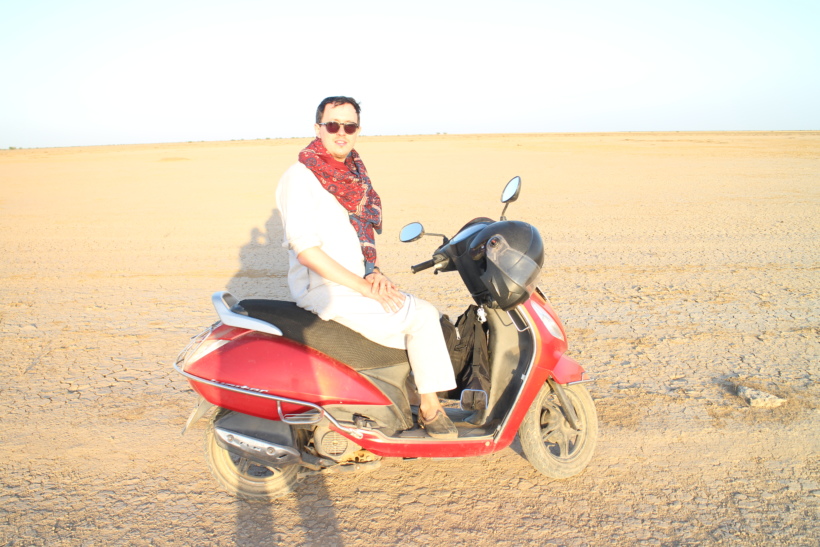News
Meet the Fellows: 2018 Newcombe Fellow Brian Bond
 The Charlotte W. Newcombe Doctoral Dissertation Fellowship fosters the original and significant study of ethical or religious values in all fields of the humanities and social sciences. The 2018 class, announced by the Woodrow Wilson National Fellowship Foundation, includes Brian Bond, a doctoral candidate in music (ethnomusicology) at The Graduate Center, City University of New York. This dissertation, titled A Heavy Rain Has Fallen Upon My People: Sindhi Sufi Poetry Performance, Ethics, and Islamic Reform in Kachchh, Gujarat, examines the use of Sindhi-language Sufi poetry performance as a tool for teaching Islam in rural Muslim communities in western India.
The Charlotte W. Newcombe Doctoral Dissertation Fellowship fosters the original and significant study of ethical or religious values in all fields of the humanities and social sciences. The 2018 class, announced by the Woodrow Wilson National Fellowship Foundation, includes Brian Bond, a doctoral candidate in music (ethnomusicology) at The Graduate Center, City University of New York. This dissertation, titled A Heavy Rain Has Fallen Upon My People: Sindhi Sufi Poetry Performance, Ethics, and Islamic Reform in Kachchh, Gujarat, examines the use of Sindhi-language Sufi poetry performance as a tool for teaching Islam in rural Muslim communities in western India.
Brian explains how a lifetime of interest in music has driven his research focus:
During my last two weeks of dissertation fieldwork in Kachchh, Gujarat—a region on India’s western border with Pakistan—I had two rewarding experiences performing sung Sindhi Sufi poetry with local musicians. The performances constituted a tangible and satisfying culmination of my sustained engagement with two sung poetry genres, kāfī and shāh jo rāg, which I have studied with local Muslim musicians since 2014 as part of my ethnomusicological research on Sindhi poetry, music, and Islamic reform in the region.
When I began research I had little to no comprehension of the poetry; I was drawn to learn it because the musical forms in which it is performed had a powerful emotional impact on me. Music has been a primary organizing principle in my life since I was a teenager: it has been through music that I have formed my most lasting and meaningful relationships at home in the United States, and more recently music has served as a medium through which I have formed close friendships with Muslim performers in Kachchh. I first honed my skills as a musician while singing and playing rock guitar with my friends in garages and basements in suburban New Jersey. After college, I fronted a folk-rock band that toured throughout the eastern United States. When I first meet people in the United States and India, they often ask how I ended up being drawn to Sindhi music and to South Asian music more generally. In the States, for the sake of brevity, I usually say “The Beatles,” and smile; in India, I say “Abida Parveen” (a popular Sufi singer from Pakistan). Both answers are truthful but abbreviated, for the full story would certainly be more than the questioner bargained on hearing.
A more complete response would also have to address a major reason these poetry performance traditions have attracted my sustained interest on a personal and academic level: sung Sindhi-language Sufi poetry is instructive of how to live an ethical life, which for Muslims in Kachchh is a prerequisite for entering heaven after death. In my dissertation, I examine this fundamental motivation underlying Sindhi Sufi poetry performance, and demonstrate how Sindhi poetry performers transmit Islamic/ethical knowledge. The fact that this music is understood and practiced within its context as a path towards knowledge and fulfilment is a notion that I have found compelling, for it recognizes music as what I too have known it to be—a force with the potential to shape one’s life and self.
For more information about the 2018 Newcombe Fellows and a list of their dissertation titles, click here.

